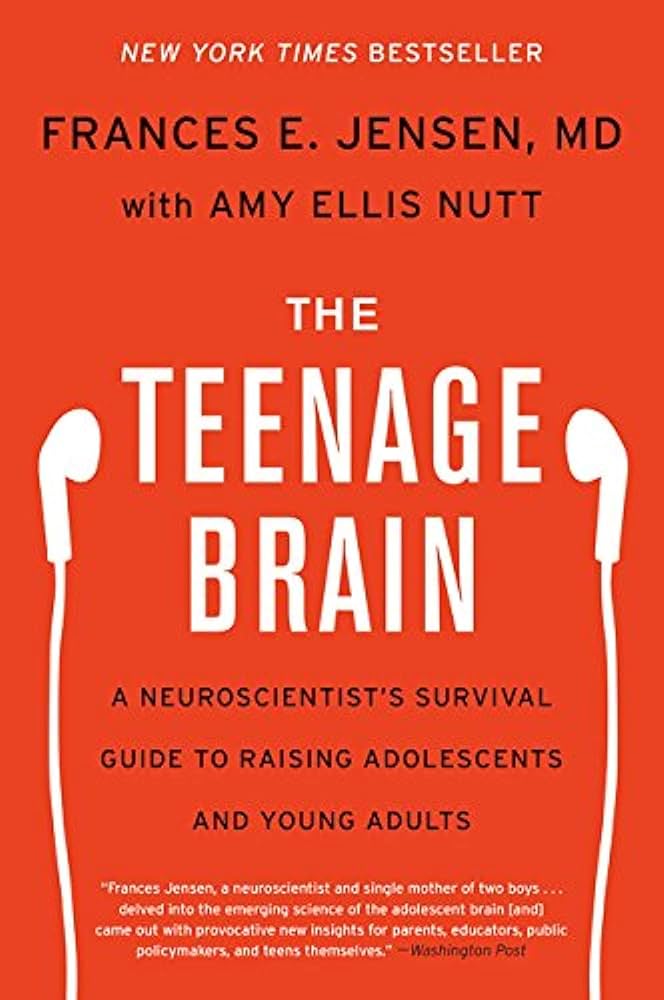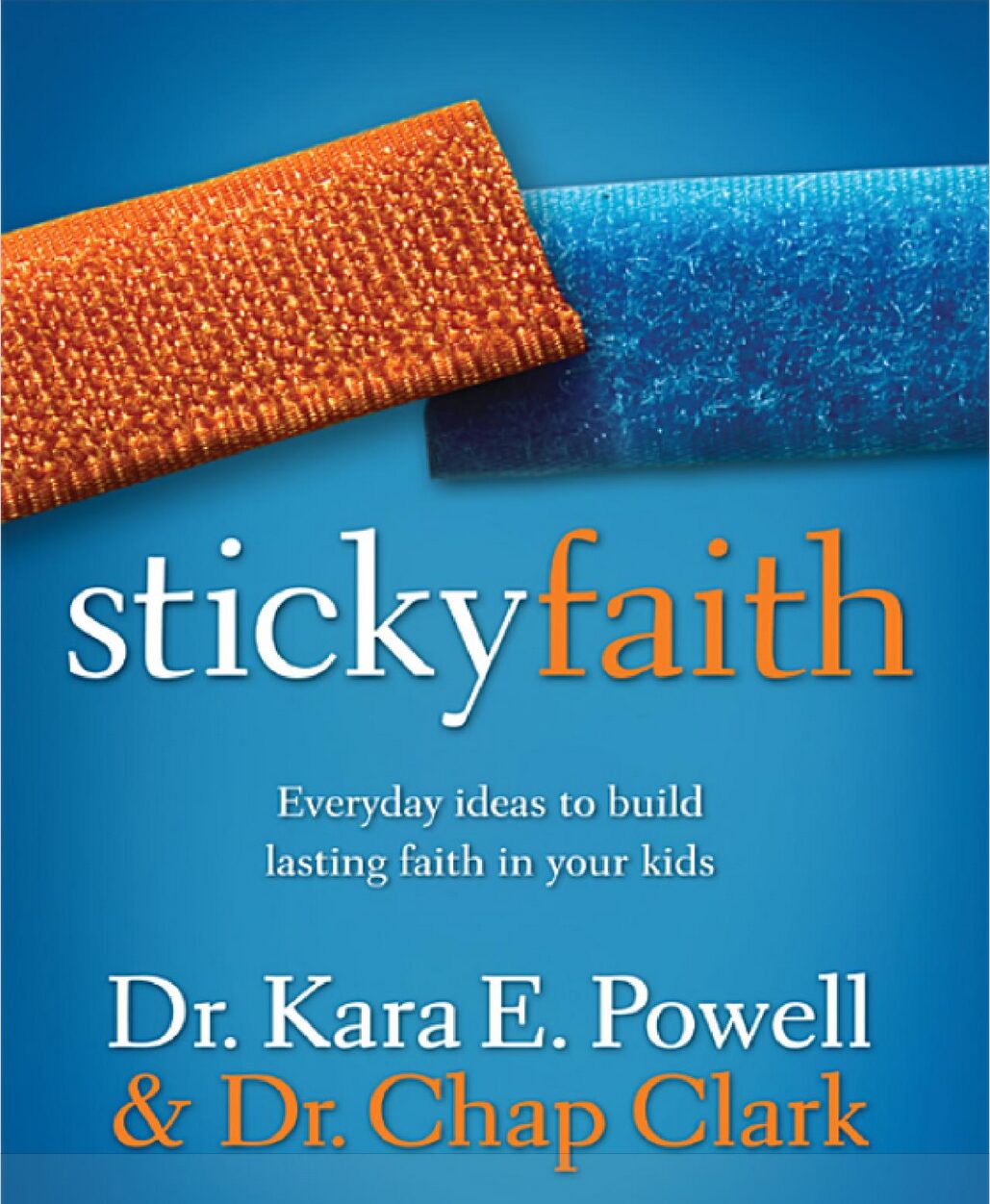Wired for God's Love:
How Does the Church
Respond to Adolescents?
… while we can always grow closer to Christ throughout our lives,
adolescence is the period when our capacity for this growth is the highest.
— The Rev. Patrick Burke
by the Rev. Patrick Burke
Every church that I have attended, or served in, has yearned to attract more youth and young families. We have long recognized a decline in attendance and engagement, and we have sought ways to change. As a parent, a youth ministry leader, and now a priest, I’ve asked a lot of questions and sought solutions in a variety of contexts seeking to share Christ’s redemptive love with youth and young families, helping them to grow in their faith.
Recently, I attended a presentation at Episcopal Community Services (www.ecsphilly.org) in Philadelphia, given by Dr. Frances Jensen, regarding her book The Teenage Brain: A Neuroscientist’s Survival Guide to Raising Adolescents and Young Adults. Dr. Jensen is a professor of Neurology and the chair of the Neurology Department at the Perelamn School of Medicine, University of Pennsylvania, and the mother of two young adults. She shared insights gleaned from her research on the adolescent brain and strategies for supporting youth and young adults in their development. She also seeks to dispel many of the myths that society has regarding the adolescent brain. As a parent, I found her wisdom to be extraordinarily insightful. As a priest, I found myself asking a lot of questions about how her research might help faith communities try to connect more deeply with youth and young adults and to support their families.
Dr. Jensen is a professor of Neurology and the chair of the Neurology Department at the Perelamn School of Medicine, University of Pennsylvania, and the mother of two young adults. She shared insights gleaned from her research on the adolescent brain and strategies for supporting youth and young adults in their development. She also seeks to dispel many of the myths that society has regarding the adolescent brain. As a parent, I found her wisdom to be extraordinarily insightful. As a priest, I found myself asking a lot of questions about how her research might help faith communities try to connect more deeply with youth and young adults and to support their families.
At the heart of Dr. Jensen’s work is sharing the physiology and development of the adolescent brain, and the combination of the incredible strengths and vulnerabilities inherent in the developmental process. She shared that our brains are not fully formed until our mid-twenties, with executive function and impulse control being among the last areas to develop. She dispelled the myth that younger brains are fully formed by puberty. In fact, her research shows that the adolescent brain is very much under construction and extremely malleable as neural pathways are created based on the experiences of the individual. In short, the brain imprints experiences very strongly during this period. In fact, it is the most impressionable period of our lives as the brain learns quickly and imprints for life.
Dr. Jensen also shared research regarding the risks during this period, particularly with how chemical substances, such as nicotine, alcohol, and cannabis, can inhibit this growth and disrupt the natural function of the impressionable brain. These dangers are real, as are the dangers with how addictive social media can be to the developing brain.
She also noted that the last area of the brain to develop is the frontal lobe, which governs executive function, risk assessment, and complex decision-making. Because of this, adolescents inherently struggle with understanding consequences — it is not a moral failure, but a natural result of their developing brain.
This is where I started wondering about how we, as communities of faith, can support youth and families during this crucial period in the adolescents’ development. Dr. Jensen suggested that one of the easiest ways that adults can support adolescents is by providing “frontal lobe assists” as they navigate life. Having an adult to help process how to make a difficult decision, or any decision that involves high risk and peer pressure, can literally save their life, but it also helps to imprint mature decision-making skills in their brains. And because the brain is so malleable, that imprint will likely stay with them for life.
Our faith communities are full of adults who are grounded in faith and a strong moral compass that could serve as mentors and provide these “frontal lobe assists.” Thanks to the work of Dr. Kara Powell, and her research with Dr. Chap Clark that led to the book Sticky Faith,  we know that these types of intergenerational relationships provide the best opportunity to build a lasting, lifelong faith in youth and young adults. The opportunity is there to provide adolescents, and their families, with relationships that nurture, creating a supportive environment during a critical time in their lives.
we know that these types of intergenerational relationships provide the best opportunity to build a lasting, lifelong faith in youth and young adults. The opportunity is there to provide adolescents, and their families, with relationships that nurture, creating a supportive environment during a critical time in their lives.
It also represents an important evangelism opportunity for the church, but not in a “please join our church to receive these benefits” way. Instead, it is the opportunity to be the Body of Christ in the world and build a beloved community by modeling how a Christ centered community not only functions to support the individual members, but participates in the transformation of the world through love and nurture. It is an opportunity to lean into the greatest strength of how we are so beautifully created in the image of God, that our brains can be literally wired towards love, empathy, and community care just as strongly as they can be for other things. And, while we can always grow closer to Christ throughout our lives, adolescence is the period when our capacity for this growth is the highest.
So if your church is yearning to connect with youth and young adults, and nurture their discipleship, please consider how you might connect with those who might need care and support as they navigate this treacherous and crucial time in their development. They just might need a “frontal lobe assist”, and they just might want to learn more about how the Body of Christ could be a place where they find love, acceptance, and beloved community that will stay with them for the rest of their lives.

The Rev. Patrick Burke, is the rector at the Episcopal Church of Sts. Andrew and Matthew in Wilmington. Prior to this call, he served in a role where he was hired to create experimental ministry and spiritual community for unchurched, vulnerable, isolated and socially-marginalized young adults in an urban, non-church space in predominantly college-age night life scene.




